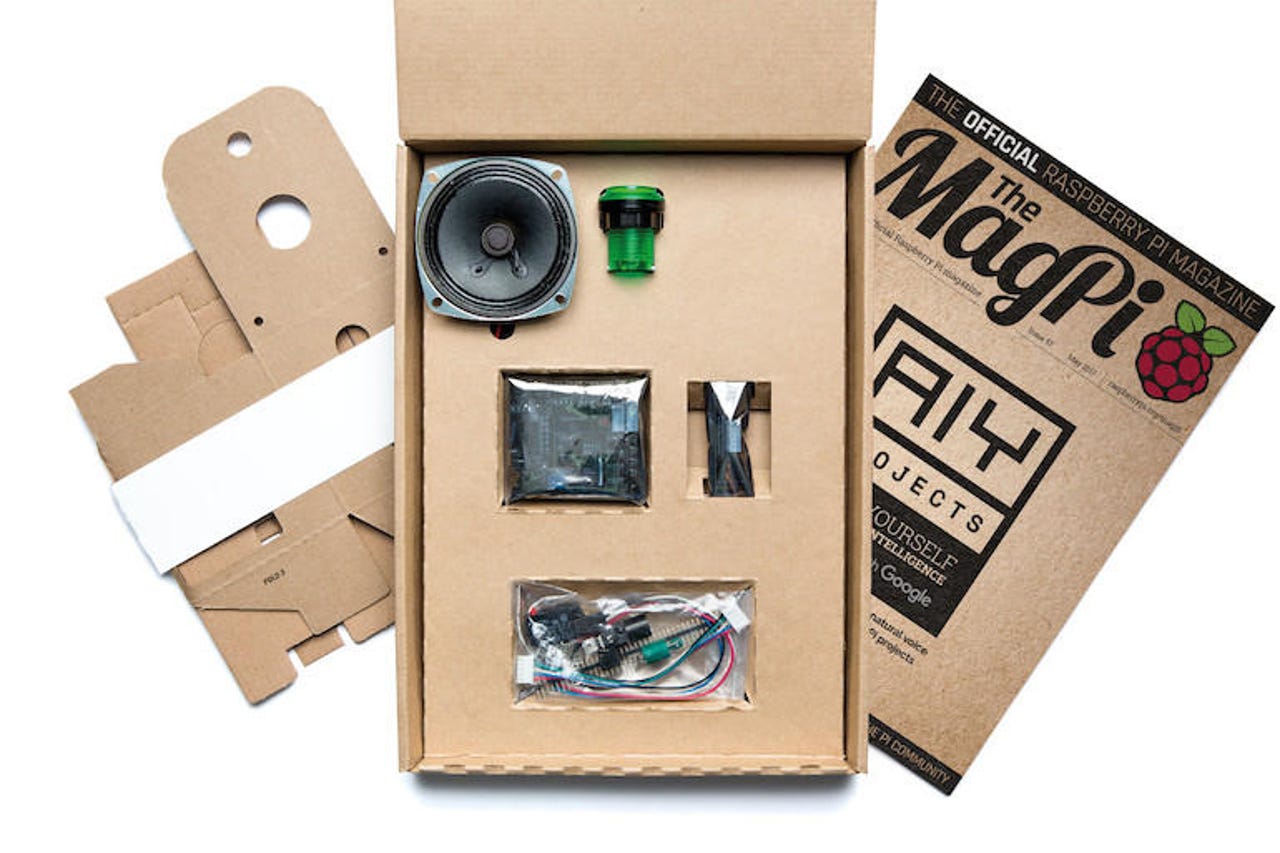Raspberry Pi: Google plans more AI projects to follow DIY voice recognition kit


The Kit originally came with a copy of the Raspberry Pi Magazine.
Google is working on more artificial intelligence projects to follow its Voice Kit for Raspberry Pi.
Google's AIY Voice Kit is a do-it-yourself voice-recognition kit for Raspberry Pi-based maker projects.
The initial run of the kits sold out in a few hours, but Google said more will be available for purchase in stores and online in the US in the coming weeks, and the kit will be available elsewhere by the end of the year.
The Voice Kit includes the same VoiceHAT (Hardware Accessory on Top), mic board, speaker, components, connectors, and cardboard box to keep it all together, as was offered when the kit was first given away with the MagPi magazine.
The Google Assistant SDK is configured by default to bring hotword detection, voice control, natural language understanding, Google's smarts, and more to the Voice Kit. Users can extend the project further with local vocabularies using TensorFlow, Google's open source machine learning framework for custom voice user interfaces. Projects built using the kit include a Dalek-voiced assistant and a voice-activated internet streaming radio.
Google said the positive reception to Voice Kit means other projects will follow.
"We'll soon bring makers the "eyes," "ears," "voice" and sense of "balance" to allow simple, powerful device interfaces," Billy Rutledge, director of AIY Projects at Google wrote in a blogpost.
Related coverage
Raspberry Pi: This Google kit will turn your Pi into a voice-controlled digital assistant
Google Home review: A promising step towards the future
Google's answer to the Amazon Echo isn't perfect, but it's the best in its class.
Read more on Raspberry Pi
- Turn Raspberry Pi into an Amazon Echo with $49 pi-topPULSE
- Hands-on with Raspbian GNU/Linux Stretch for Raspberry Pi
- Pi Desktop: This kit turns your Raspberry Pi into a Linux desktop
- NComputing RX300 review: Accessing Windows 10 via a Raspberry Pi-based thin client
- Raspberry Pi: The smart person's guide (TechRepublic)
- Turn any hard drive into networked storage with Raspberry Pi (CNET)